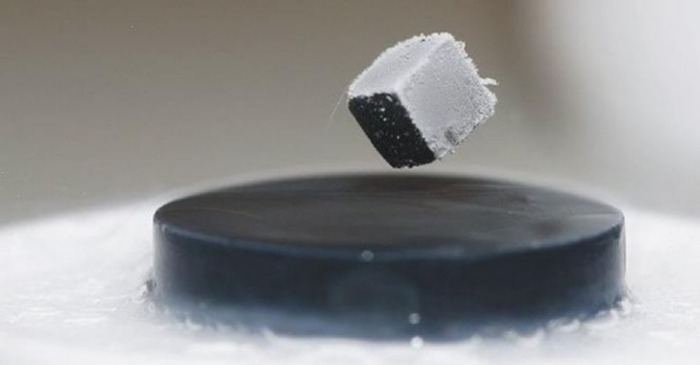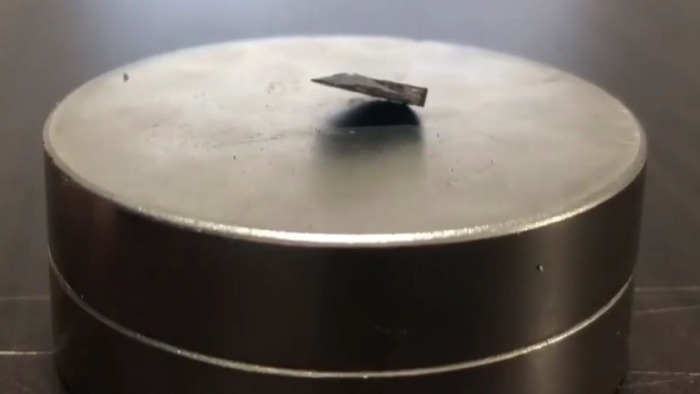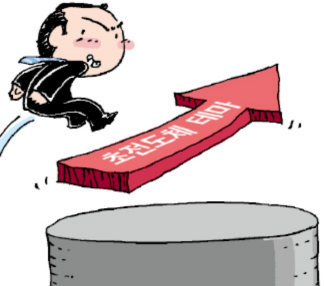Tech, Media & Telecom
Academics say no scientific proof for LK-99 as superconductor
The LK-99 research team has not provided LK-99 samples for cross-verification studies
By Dec 13, 2023 (Gmt+09:00)
2
Min read
Most Read
LG Chem to sell water filter business to Glenwood PE for $692 million


Kyobo Life poised to buy Japan’s SBI Group-owned savings bank


KT&G eyes overseas M&A after rejecting activist fund's offer


StockX in merger talks with Naver’s online reseller Kream


Mirae Asset to be named Korea Post’s core real estate fund operator



South Korean academics have concluded the material, dubbed “LK-99,” lacks scientific proof to be recognized as a room-temperature and ambient-pressure superconductor, the Korean Society of Superconductivity and Cryogenics said on Wednesday, wrapping up four months of verification research on the material.
In August it formed a committee to prove the authenticity of the material, which some Korean researchers claimed was the world’s first room-temperature and ambient-pressure superconductor.
"Based on the data used in the research papers (on LK-99) and the results of domestic and overseas replication experiments, there is no evidence at all that LK-99 is a room temperature and ambient pressure superconductor,” said the verification committee.
The announcement affirmed its earlier judgment that the data in the papers failed to show LK-99’s superconductivity such as zero resistance and repulsion of magnetic fields.

In July this year, a Korean research team said they had discovered a new room-temperature, ambient-pressure superconductor and submitted two relevant papers to arXiv, an open-access repository of non-peer-reviewed electronic preprints and postprints.
The announcement caused an immediate sensation in the academic world and stock markets, driving the share prices of companies speculated to be winners of the superconductor sharply higher.
The research was led by Kim Hyun-tak, a research professor of physics at Virginia-based liberal arts university William & Mary and Lee Suk-bae, chief executive of the Seoul-based Quantum Energy Research Center.

On Wednesday, the verification committee said its conclusion was based on experiments to replicate the purported properties of the material LK-99 by domestic and foreign research houses.
The committee published a white paper online on the results of their studies.
In South Korea, eight research teams, including one at the prestigious Seoul National University, carried out the replication experiments, in which LK-99 failed to exhibit superconductivity at room temperature.
In some samples, LK-99 showed some superconductor properties near 100 degrees Celsius, but it was found that impurities made it appear similar to a superconductor.
The verification committee was unable to carry out cross-case studies because the Quantum Energy Research Institute has not provided samples related to LK-99.
“If the Quantum Energy Research Institute provides the samples, we are willing to cooperate at any time,” the committee said.
It added that the LK-99 hype has increased the public's understanding of scientific issues. But it also caused unnecessary social controversy and repercussions due to the public's lack of understanding about the gap between claims of scientific discovery and their scientific basis.
Write to Jin-Won Kim at Jin1@hankyung.com
Yeonhee Kim edited this article.
More to Read
-
 Tech, Media & TelecomKorea's superconductor stocks plunge on Nature report
Tech, Media & TelecomKorea's superconductor stocks plunge on Nature reportAug 17, 2023 (Gmt+09:00)
3 Min read -
 Tech, Media & TelecomKorea's new superconductor will be verified: research team
Tech, Media & TelecomKorea's new superconductor will be verified: research teamAug 04, 2023 (Gmt+09:00)
4 Min read -
 Korean stock marketMXene: Korean investors’ next target after superconductor craze fizzles
Korean stock marketMXene: Korean investors’ next target after superconductor craze fizzlesAug 21, 2023 (Gmt+09:00)
3 Min read -
 Tech, Media & TelecomS.Korean academics to verify truth of room-temperature superconductor
Tech, Media & TelecomS.Korean academics to verify truth of room-temperature superconductorAug 02, 2023 (Gmt+09:00)
2 Min read
Comment 0
LOG IN


